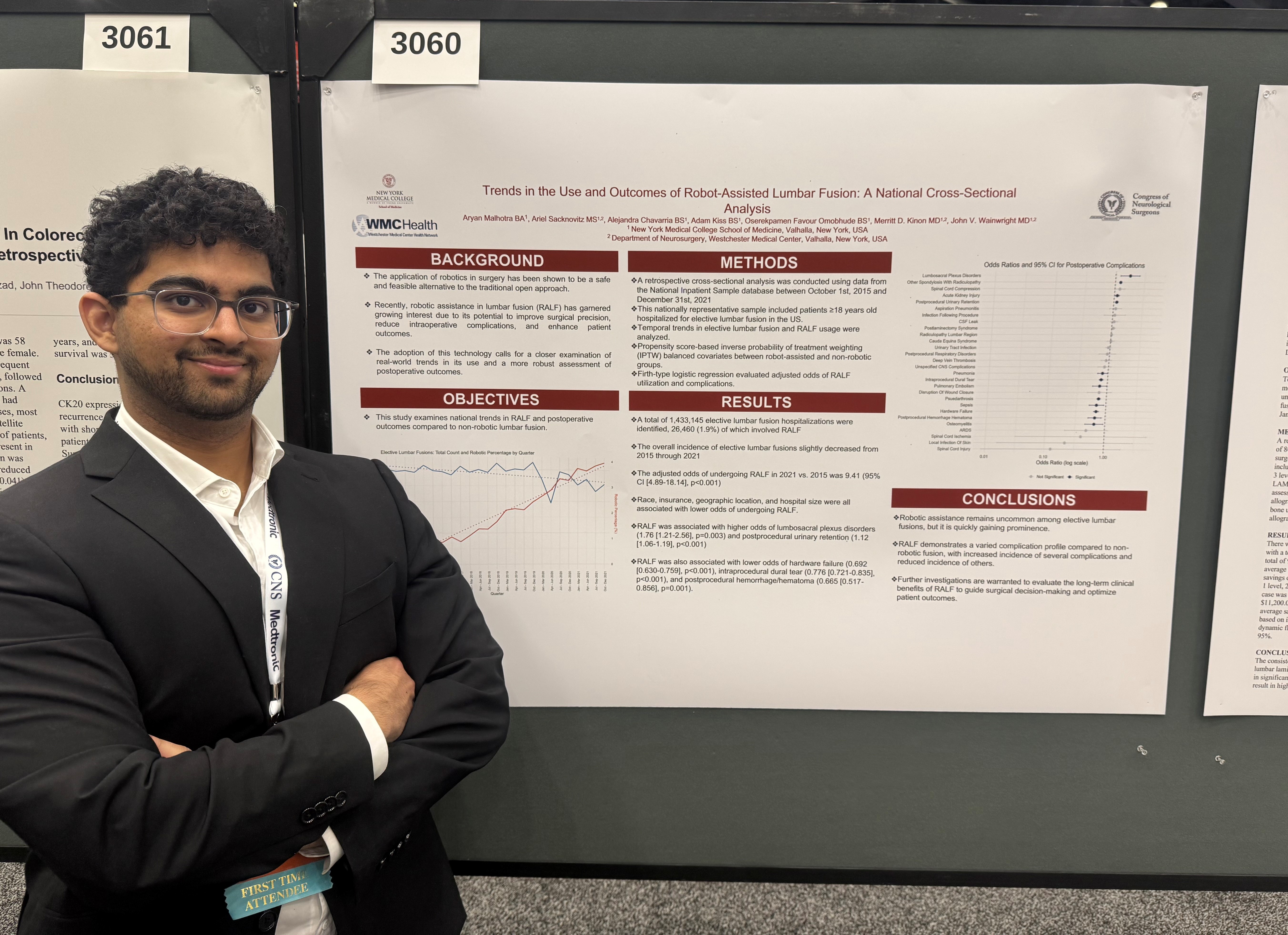SOM Student Aryan Malhotra Sets Research Records at Neurosurgery Conference
Malhotra Was Part of 24 Research Projects Presented at the Conference, Including 18 as First Author

Aryan Malhotra, SOM Class of 2027, may have set a research presentation record with his participation at the Congress of Neurological Surgeons (CNS) Conference in October, where he was a part of a staggering 24 research projects, including 18 as first author.
His first-author projects, which included 16 poster presentations and two podium presentations, focused on a range of topics, including stroke, traumatic brain injury, and the spine.
“While the majority of these projects were initiated from my own ideas, several were developed collaboratively with the attending physicians I work with,” says Malhotra, who credits his ability to perform statistical analysis independently using RStudio as critical to his plethora of research projects. “It cannot be overstated how beneficial it is to understand statistics and know how to conduct research independently.”
For his major podium presentation, Malhotra and his fellow New York Medical College researchers revealed critical inequities in stroke treatment access and outcomes.
“We found that stroke patients treated at urban hospitals were significantly more likely to undergo endovascular thrombectomy (EVT), be routinely discharged home, and have a lower inpatient death rate than those at rural facilities,” says Malhotra. “In addition, Black and Asian patients were less likely to receive EVT than white patients, while individuals with private insurance or higher income had the greatest likelihood of receiving EVT.”
His second podium presentation examined the use of EVT and intravascular thrombolysis in pediatric patients with acute ischemic stroke. “Though used infrequently, both interventions were shown to reduce inpatient death without an increased risk of hemorrhage,” says Malhotra. “Broader adoption of these treatments, supported by further research and updated clinical guidelines, could help close a major gap in pediatric stroke management and lead to better survival and recovery outcomes.”
While Malhotra did find it challenging, particularly during the poster presentations, to give each project the full attention it deserved, he nevertheless found his first podium presentations to be invaluable experiences. “The oral presentations felt natural since I was deeply involved in every stage of the work and was fully prepared to address any questions,” he says.
Malhotra remains committed to his research endeavors. “I see research as a way to make a meaningful difference. As medicine continues to evolve through new discoveries, being part of diverse projects strengthens my own medical knowledge and helps uncover ways to improve healthcare policy, clinical practice, and ultimately patient outcomes,” explains Malhotra, who plans to pursue a career in neurosurgery.
“Even with the tremendous progress made in neurosurgery in recent years, neurological conditions continue to present some of medicine’s most complex challenges. Neurosurgery brings together intricate knowledge of anatomy, rapidly evolving technology, and incredibly diverse pathology. The opportunity to combine precision and innovation while continually learning and improving quality of life for patients facing life-altering conditions truly inspires me.”

